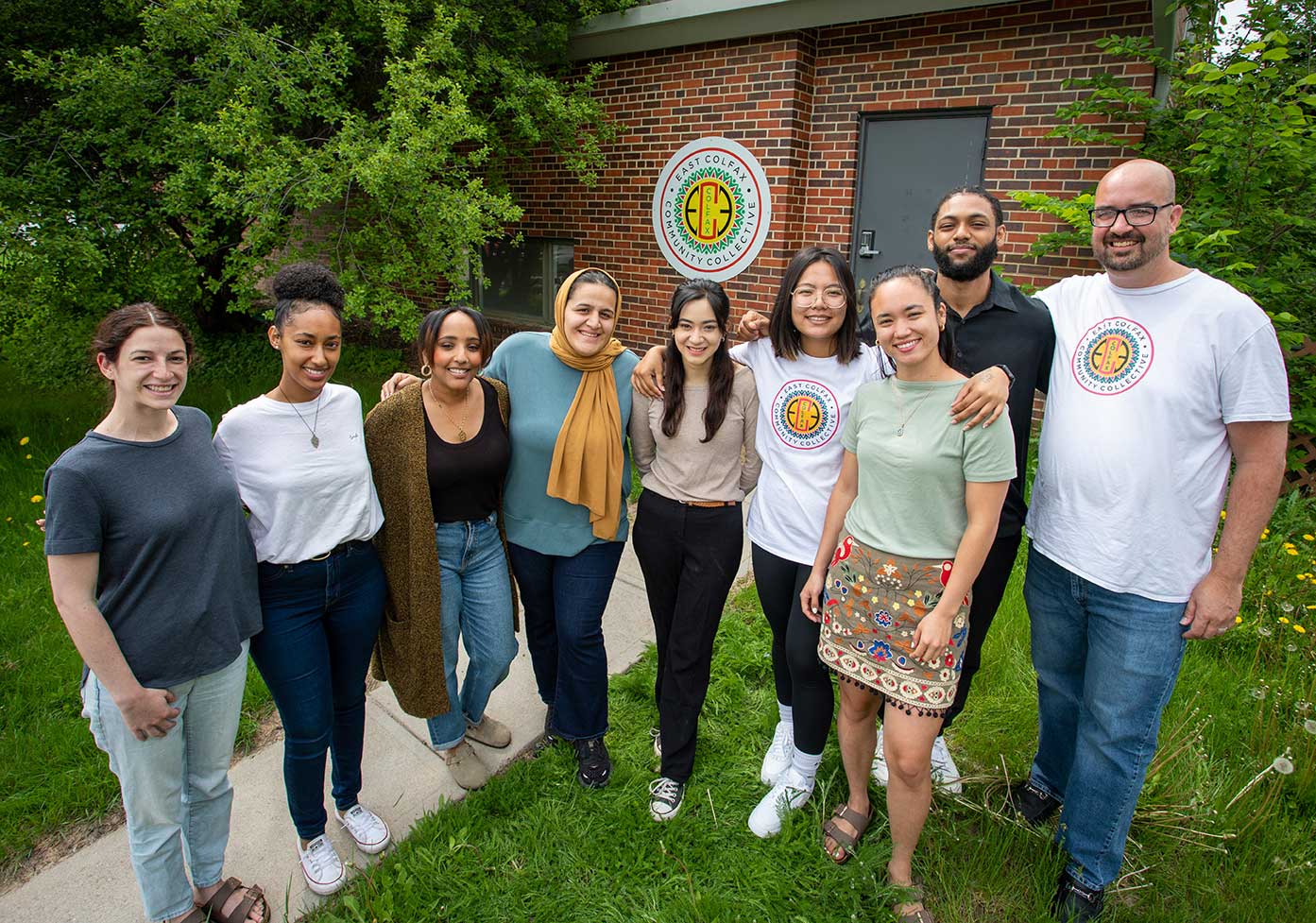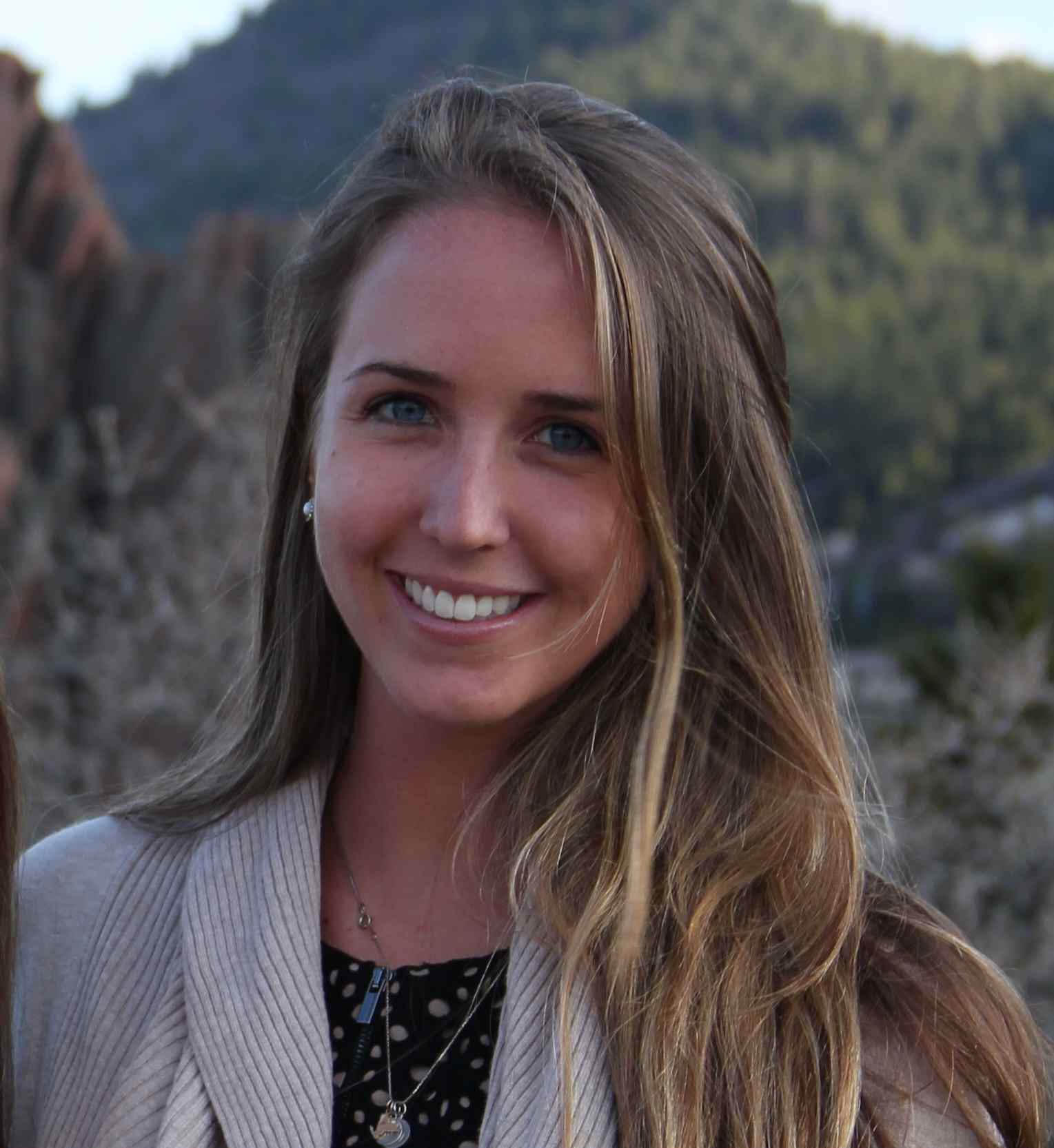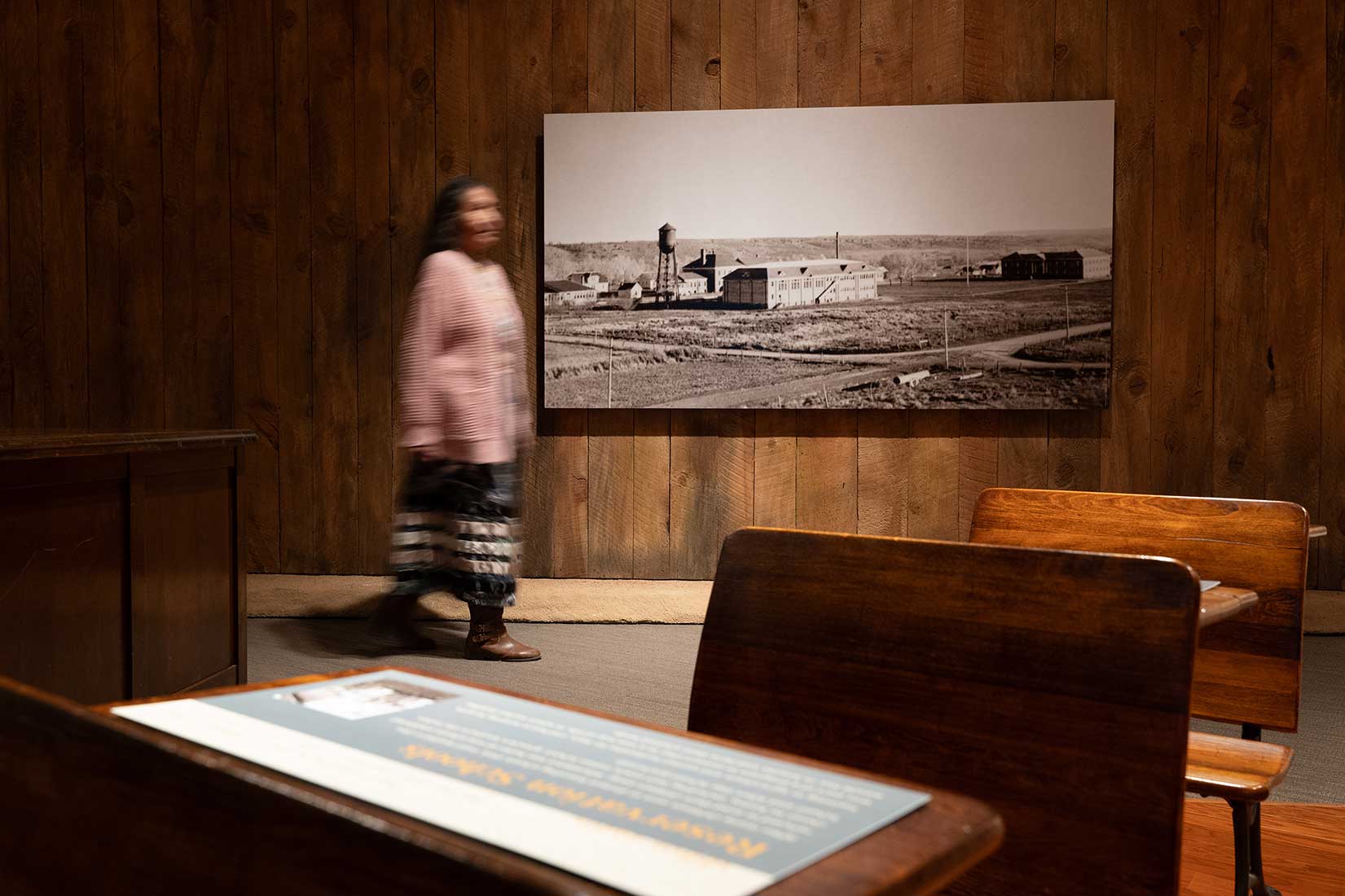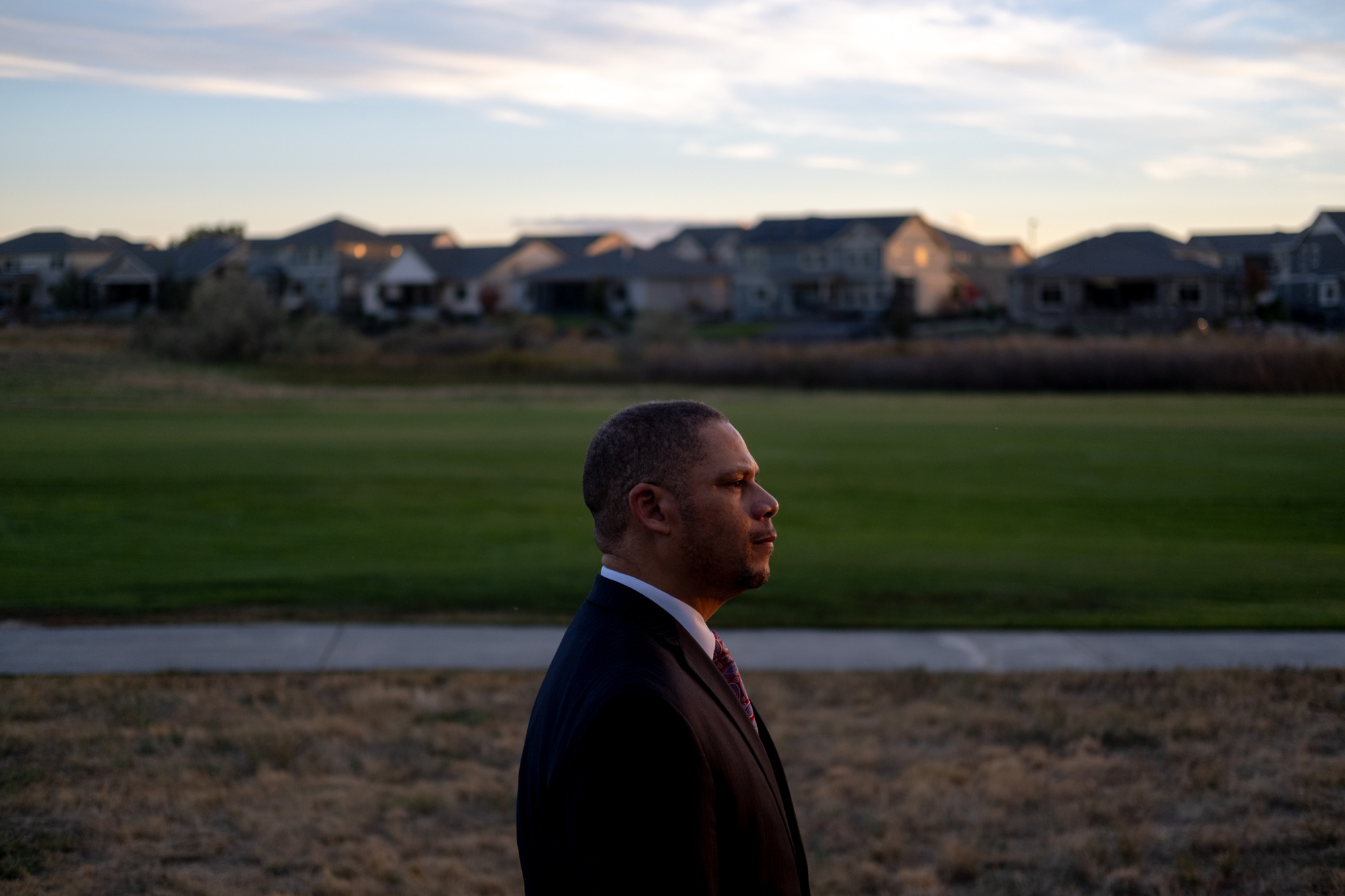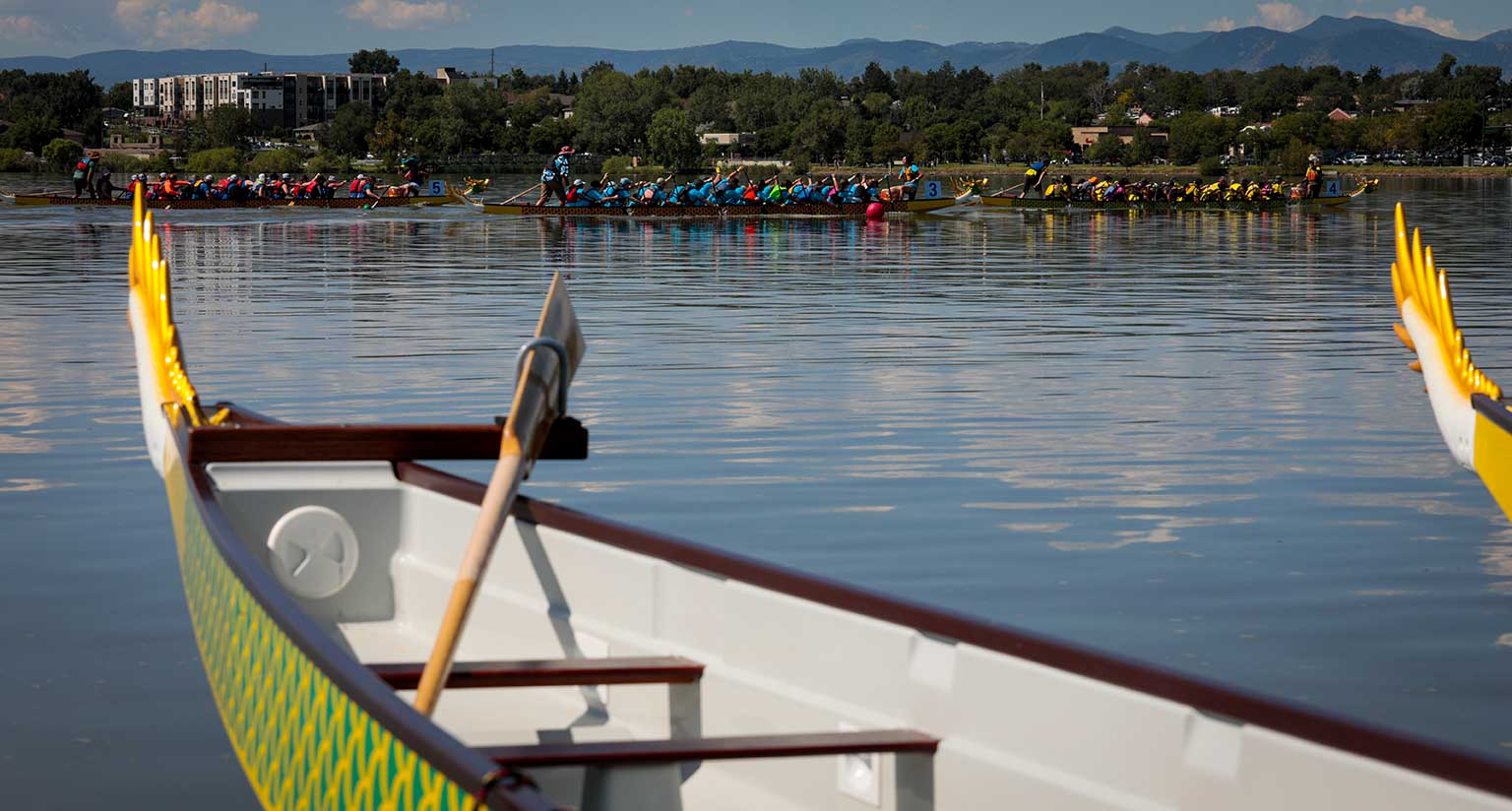As one of Denver’s most diverse neighborhoods, East Colfax is home to a sizable refugee and immigrant population. A quarter of residents are foreign born, and 10% of adult residents are non-English speakers, per a census data analysis. Due to the surging cost of living, new housing developments, policy decisions and other factors, long-time East Colfax residents are threatened with displacement.
East Colfax Community Collective (EC3), a relatively new, fast-growing organization (and a grantee in The Colorado Trust’s Building and Bridging Power strategy) is working to address this challenge with community-driven advocacy work that supports residents and small businesses.
Founded in 2019 as an all-volunteer organization, EC3 is now a nonprofit with 10 full-time staffers. Their mission is to “fight displacement and build collective power in our community to shape our own destiny,” said Brendan Greene, EC3’s executive director and co-founder.
“We’re really all about connecting with our neighbors and our local businesses, analyzing what’s happening in the neighborhood, [and] building power so that we can be involved in any and all decisions that impact us as a community,” said Greene.
Helen Tekle, EC3’s business campaign manager and an Ethiopian refugee, moved to the East Colfax neighborhood at age 12. She found home and community there. East Colfax, she said, is “very culturally, internationally rich.”
It’s also one of the poorer neighborhoods in Denver. The average household income is $57,413—nearly half of the average for the Denver metro area ($97,285). Almost a quarter (23.6%) of families in East Colfax live in poverty, compared to just 6.9% of families in the Denver metro area.
The East Colfax neighborhood is one of several dozen Denver metro area communities undergoing “advanced gentrification,” according to a data analysis by the Urban Displacement Project. All of EC3’s service programs are created with the purpose of connecting to those who are most at risk of displacement and getting their input on where EC3 should focus its work and what it should advocate for, said Greene.
As such, language justice is one of EC3’s core values. From the onset, they’ve provided interpretation and translation services at their meetings in languages such as Burmese, Karen, Spanish and French so that all residents can participate. EC3 “really created a space where everybody knew that they had a voice,” said Greene.
EC3 formed in response to the East Area Plan, a 20-year, city-led development plan for the East Colfax, Hale, Montclair and South Park Hill neighborhoods. As the city was drafting the plan, Greene, who at the time was working for another East Colfax-based nonprofit, started learning more about it.
“I just realized that there was a humongous segment of our community that was not being engaged and didn’t have a voice in the future of this neighborhood,” he said. So Greene asked local leaders who were well-connected to the East Colfax community for their feedback on the draft plan.
The overwhelming sentiment? The plan, as written, “wasn’t doing near enough to stop displacement,” said Greene. “They felt like it was trying to solve the housing crisis that our neighborhood is facing with the same broken tools that have failed every other neighborhood that’s been gentrified in the Denver Metro area.”
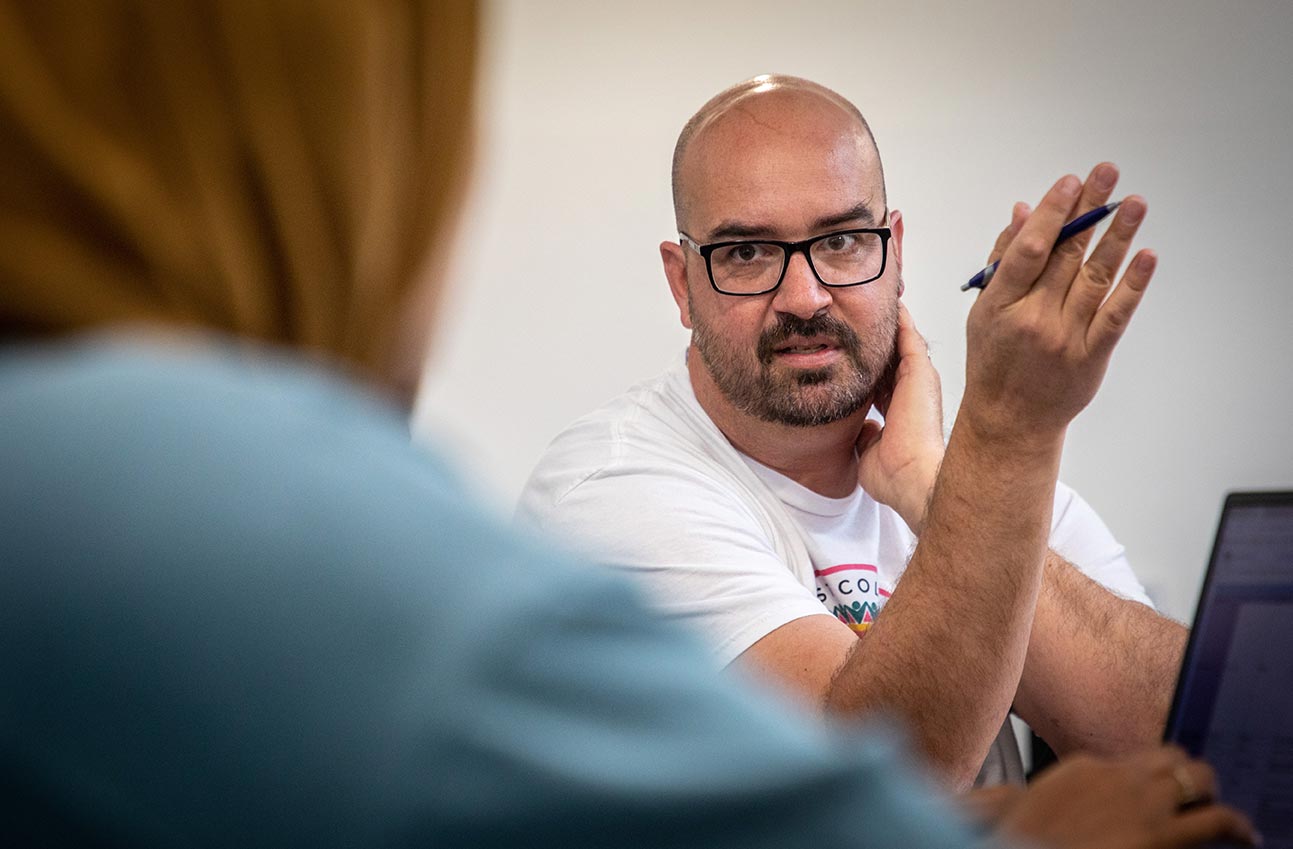
Brendan Greene, co-founder and executive director of East Colfax Community Collective.
In response, Greene and about 20 local leaders conducted a critical analysis of the plan—determining which elements they liked, and which ones they didn’t—and “decided that we weren’t just going to sit by as they tried to rubber-stamp this plan in the neighborhood,” he recalled. The group held a press conference in November 2019 where they publicly rejected the plan, and called out the City of Denver for not doing enough to stop displacement and for “disingenuous engagement” of local communities of color and the immigrant and refugee communities.
As Denverite reported, the group called for specific additions to the plan, including increasing affordable housing; supporting immigrants and refugees by establishing a pro-bono legal clinic; creating incubation programs to help businesses that don’t have storefronts (such as food trucks); and expanding programs like the Housing Choice Voucher Program (formerly Section 8 vouchers, which provides rental assistance to income-eligible people). This press conference, said Greene, marked the genesis of EC3.
EC3 then invited the city to attend a meeting in February 2020 to hear the perspectives of community members. Seventy-five local community leaders attended that meeting, which lasted four hours and was translated into six different languages, according to Greene. In the months that followed, EC3 held a series of forums with the city and East Colfax residents. Through repeated advocacy efforts, EC3 secured over 65 additions to the plan to combat displacement, said Greene.
Even so, “we still felt like the plan didn’t go close to far enough and some of our major demands were still not met,” he said. These demands included property tax relief for East Colfax area businesses at risk of displacement, and establishing a “no net loss” policy that would require replacing all affordable units in East Colfax lost to renovation, conversion or demolition. Ultimately, EC3 publicly opposed the plan, which was approved by Denver City Council in November 2020.
The arrival of the COVID-19 pandemic earlier that year expanded the scope of EC3’s work. When the pandemic first hit in March, spurring widespread business closures, EC3 hosted virtual meetings with local immigrant and refugee leaders and asked how the organization could support them. They soon learned that many folks in the East Colfax neighborhood were deeply impacted by the COVID-19 shutdowns.
“A lot of our community members work in service industries, hospitality, food service, and so they were some of the hardest-hit industries in COVID,” said Greene. As a result, many were struggling to maintain stable housing; about 63% of East Colfax residents are renters, and 54% of those renters spend more than 30% of their income on housing.
Greene tried to help one of EC3’s leaders who is Burmese navigate the rental assistance process. “It took me all of like a minute to realize how broken the process was if you weren’t an English or a Spanish speaker,” said Greene.
The experience inspired EC3 to launch their housing assistance campaign. With support from local foundations that provided language interpretation services (including The Colorado Trust), as well as a team of 20 volunteers whom EC3 trained to complete rental assistance applications, the campaign to date has prevented 240 evictions; served more than 1,000 households in East Colfax; and acquired over $3.5 million in rental assistance funds for the East Colfax corridor.
Even so, EC3 residents continue to identify surging rental rates as their biggest housing challenge. “A lot of our community is paying nearly 50%, if not more, of their income towards rent just so that they can stay housed,” said Nadeen Ibrahim, EC3’s organizing director.
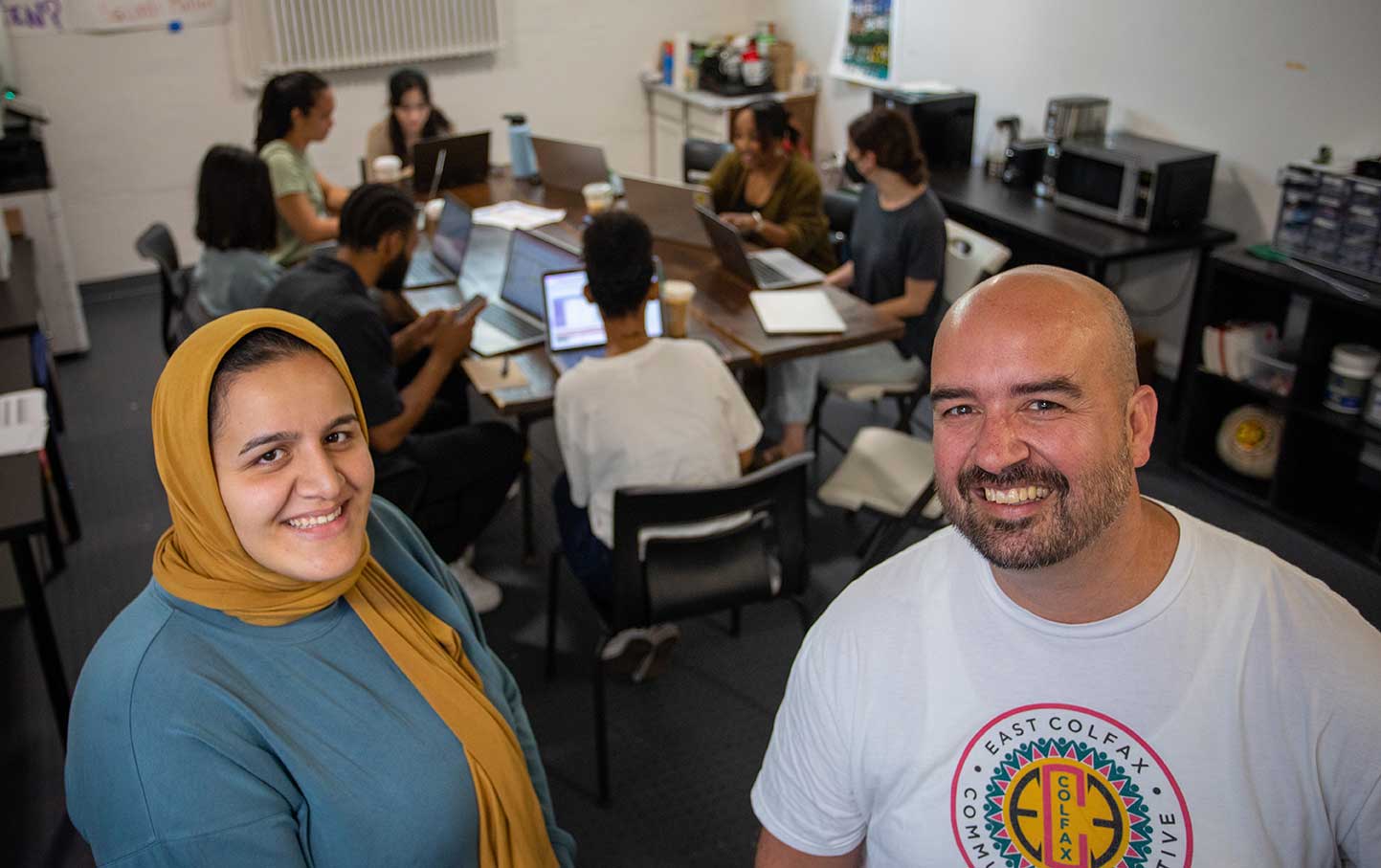
Nadeen Ibrahim, East Colfax Community Collective’s organizing director, with Brendan Greene inside the organization’s offices.
EC3’s housing campaign identifies the barriers that prevent people from accessing stable housing—such as unemployment and not knowing how to access federal assistance programs—and then helps community members overcome them. The campaign also focuses on housing defense, which includes informing residents about their rights and protections as tenants, and assisting in cases of eviction by providing legal representation and helping people secure emergency rental assistance, said Ibrahim.
Lara Frey, manager of programs and resource navigation at Hidden Brook Apartments, a Hope Communities affordable housing complex in the neighborhood, said EC3 has helped current and former residents with various housing needs, including rental assistance and navigating issues with homeowner’s associations.
Before EC3’s inception, Frey doesn’t recall many resources for rental assistance outside of Denver’s Temporary Rental & Utility Assistance Program. “Nobody is duplicating services,” said Frey of EC3’s work. “I feel like they created a great niche of services and empowerment for the community.”
“EC3 is really the boots-on-the-ground, in-the-trenches organization that has the relationships in these communities along East Colfax,” agreed Kate Countryman, director of communications at the Community Economic Defense Project, a Denver-based nonprofit that aims to build economic and racial equity through advocacy and service work. The two organizations partner to help people access legal services for housing-related issues.
“They really are seen as the go-to organization for folks because they are reliable, they are effective, they are transparent in how they operate, and they really try to serve everyone in the community,” she added.
As part of their housing campaign, EC3 and members of the Grassroots Leadership Council (a coalition of grassroots organizations working together to ensure that local development benefits existing residents of the East Colfax corridor) have also advocated against new developments that they believe would increase displacement and gentrification in the neighborhood, primarily by driving up both property values and property taxes (which are already skyrocketing). Ibrahim points to the Ambience project, a newly approved condominium building in northwest Aurora, that will include 44 luxury condos with prices starting at $600,000, as Westword previously reported. A “good portion” of EC3 members live nearby and “not a single one” of them has the ability to secure a loan to purchase one of the condos, said Ibrahim.
“We’ve already seen the repercussions of approving that type of development,” she said, explaining that some landlords in the area have increased rental prices and been more willing to move forward with evictions than in the past. Joining members of the Grassroots Leadership Council, EC3 publicly protested the project’s development as well as construction of townhomes on Grand Avenue, as the Denver Post reported.
In addition to supporting local residents, EC3 also works extensively to serve small businesses.
Through a survey of 50 local businesses early on in the pandemic, EC3 discovered none of them had received the government grants for which they had applied. That finding inspired EC3 to launch the East Colfax Small Business Relief Fund. With online fundraising and a state-awarded COVID-19 relief grant, EC3 distributed $1,000 grants to 38 different businesses in the neighborhood. EC3 reported that 91% of the grants went to businesses owned by people of color, and 63% of recipients were multilingual.
Today, the program exists as a business assistance campaign and business navigation work, through which EC3 has awarded over half a million dollars in grants, said Tekle, the business campaign manager. These funds have reportedly helped prevent at least two businesses from permanently closing.
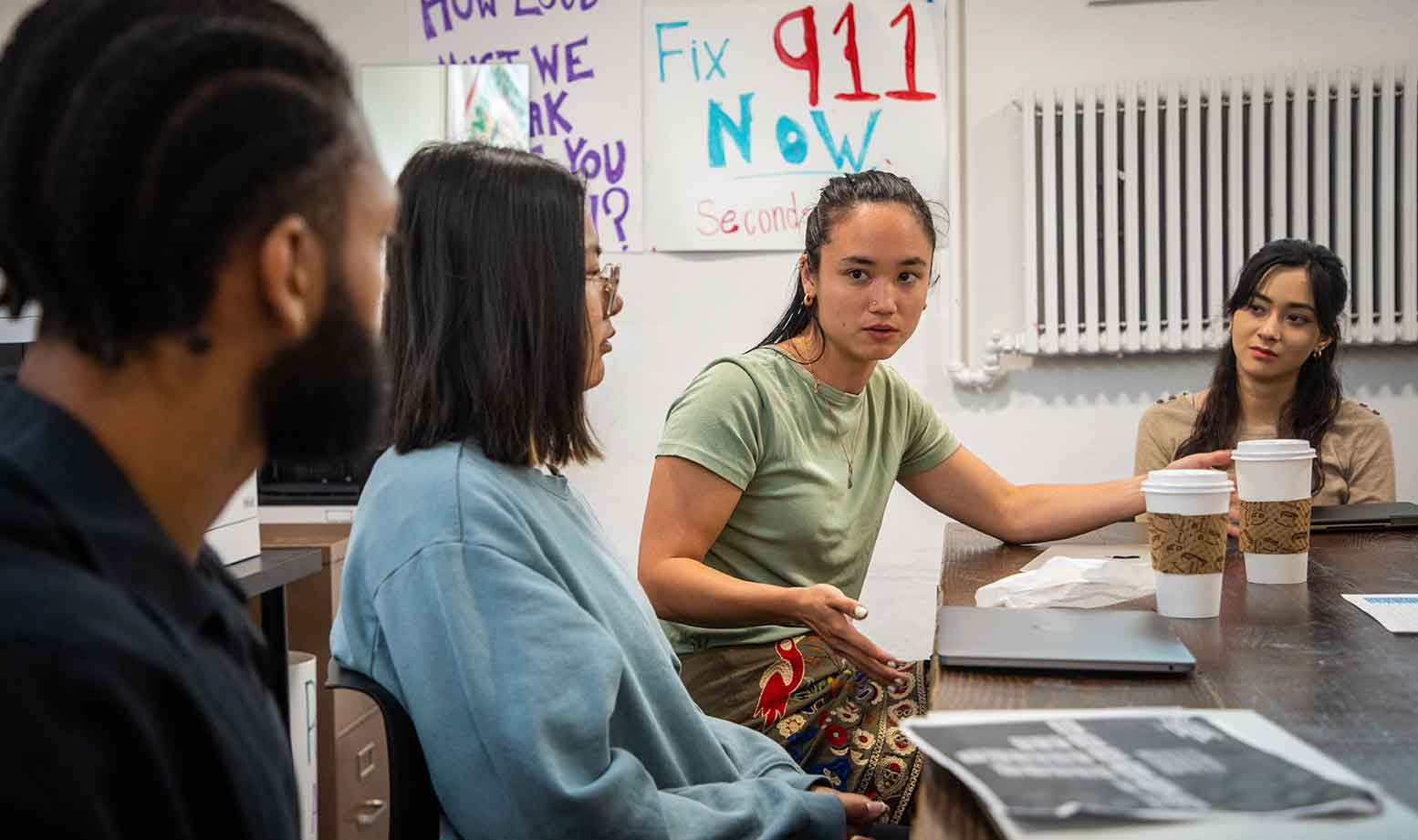
East Colfax Community Collective staff members Nate Kassa, Amy Ruth, Kalena Wong and Dixie Diaz chat during a team meeting.
EC3 now supports over 100 businesses that, combined, provide services in 10 different languages. This support includes helping businesses secure grants, loans or other forms of financial assistance; helping them navigate permitting and licensing processes; providing leadership development, bimonthly legal clinics and marketing workshops; assisting with safety issues like break-ins and loitering; and advocating on their behalf for legal matters.
A steering committee of 20 businesses meets every month to discuss current issues in the neighborhood and how EC3 can help resolve them. At the moment, taxes are a big issue.
“Commercial property tax is what’s killing my businesses right now,” said Tekle. The influx of new buildings in the area is driving up costs, she said.
Earlier this year, in conjunction with Kitchen Network, the Denver Food in Communities project and Rocky Mountain MicroFinance Institute (RMMFI), EC3 launched an incubation program to support East Colfax residents interested in opening their own catering, food truck or other food-oriented businesses.
“A lot of our community cooks. They are really good cooks,” said Tekle. “They want to sell their food, and they actually do amongst each other.” Through the program, about 12 small-business owners completed a one-month business fundamentals course hosted by RMMFI in their native languages, and are now receiving food safety training and preparing to sell their products at a market this summer.
Though RMMFI has “some name recognition in the community,” that doesn’t extend as much to non-English speaking immigrants, said Jeremy Katz, the Denver metro regional director for RMMFI. By partnering with EC3, “it was really great to kind of get a foot in the door in those communities,” he said.
Liz Moskow, chief strategy officer at the Kitchen Network location in Park Hill, a commissary offering kitchen space to specialty food businesses, commended EC3 for their steadfast commitment to language justice. When planning the incubators project, Moskow said she found programming that fit into the organizers’ vision for the project. But Tekle, Moskow recalled, said the programming wasn’t viable unless it was offered in all the languages needed—including two Burmese dialects—so that none of the participants were at a disadvantage.
“I really applaud her,” said Moskow, adding that Tekle is “always pushing” to make sure that EC3’s offerings align exactly with their values.
Greene, who brought with him to EC3 a deep history of community organizing as well as relationships with funders, believes the organization’s initial growth was the result of people being familiar with his prior work. But he attributes EC3’s continued success to the fact that they are deeply connected to the community they aim to serve.
“We really walk the walk, and talk the talk,” he said. “There are a lot of folks who claim to be working against displacement but have very little connection to that community.”
EC3’s budget for the 2023 fiscal year is $1.2 million—nearly five times their 2020 budget. Funding sources include the cities of Denver and Aurora, as well as local foundations and even other nonprofits. During an Aurora City Council meeting in January, two council members expressed concerns over EC3 when discussing how to allocate $2.5 million in pandemic funds to local nonprofits. Per the Denver Gazette, council member Francoise Bergan “criticized the collective’s operating budget as ‘very elementary’ for an organization its size, pointed out it is based in Denver, said it duplicates services already in Aurora and took issue with its activism.”
Responding to Bergan, Greene said EC3 “will never sacrifice our values for funding. Our mandate from our membership is to be advocates against displacement. And we don’t have any issue with being advocates against displacement.”
“We are one of the only organizations that’s providing the navigation support to both business and residents in any language,” Greene added.
Looking ahead, EC3 is considering expanding its programming by launching a community land trust model that would allow the organization to acquire rental properties and then stabilize rental rates for a majority of the tenants. They are also exploring a downpayment assistance program that would help renters eventually become homeowners, as well as exploring ways to help local businesses buy their properties.
At the state level, EC3 is working to pass legislation on rent stabilization as well as housing conditions. Greene acknowledged that at the end of the day, the threat of displacement—the ultimate driver of the organization’s work—isn’t unique to East Colfax.
“It’s something that businesses and residents are facing in all corners of our city,” he said. As such, “we’re hoping that our advocacy and the coalitions that we’re building with other like-minded organizations, people and communities will just continue to grow.”
